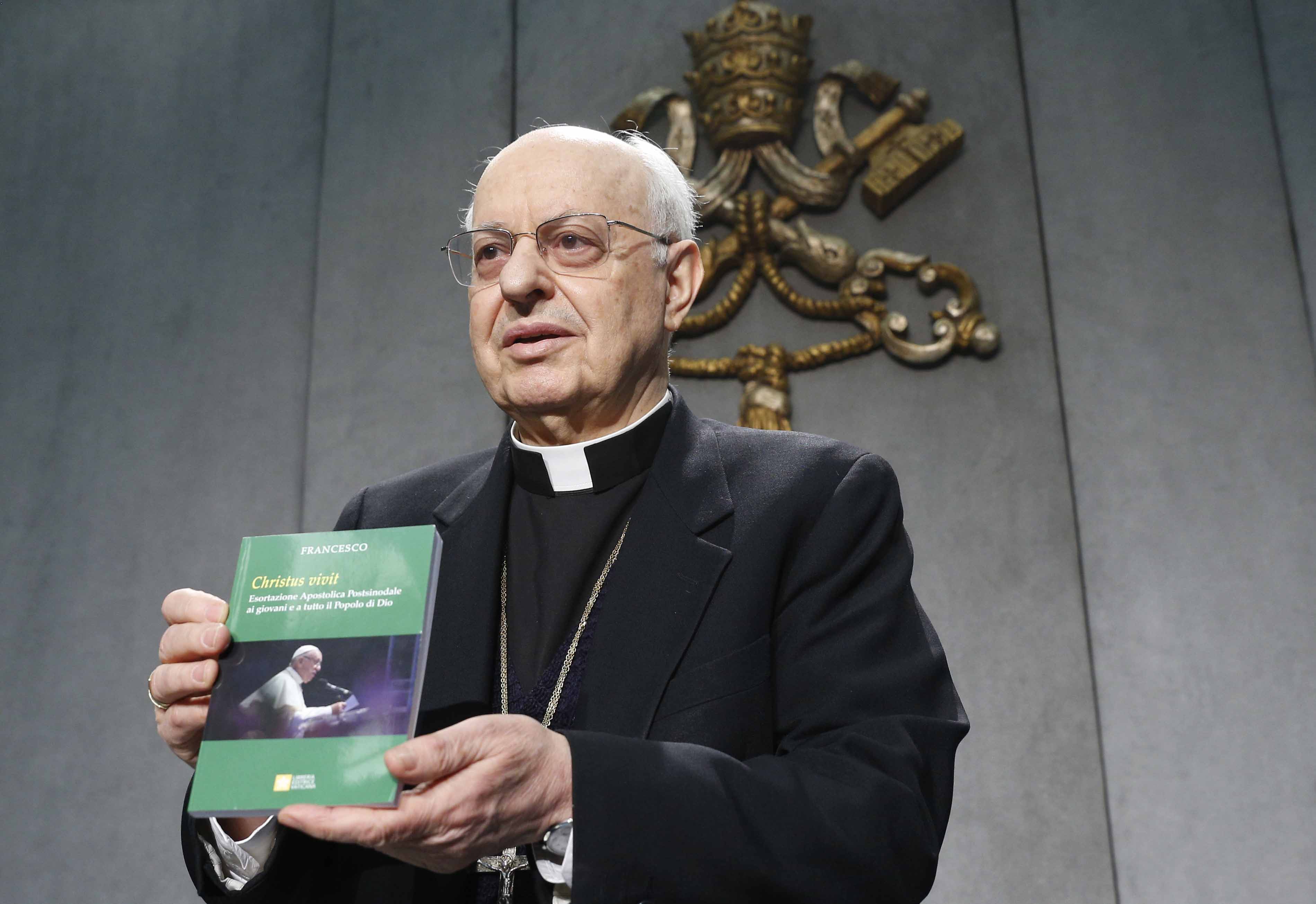By Claire Giangravè and Inés San Martín

ROME (Crux) – Pope Francis published a new document April 2 dedicated to youth, bringing full-circle a process of consultation that began last year when the Vatican reached out to young people around the world ahead of an October summit of bishops on how to better approach them.
Called “Christus Vivit,” the document is 180 pages long and takes into consideration not only what was said during the Synod of Bishops but also what the youth said during a pre-synod gathering that took place in Rome several months earlier. Though some 200 people were in attendance, thousands more participated through Facebook.
A Solid Document
Crux spoke with three of the participants in that pre-synod summit: Katie Prejan from the United States; James Kelliher from the United Kingdom; and Letizia Schäfer, a Brazilian living in Rome at the time of the meeting but who’s now in Switzerland, after she was married by Pope Francis to a former member of his personal army, the Swiss Guard.
“In ‘Christus Vivit’, Pope Francis discusses the wide range of topics mentioned in the synod meetings last year,” Kelliher said.
In doing so, the pontiff “put together a solid document, full of hope,” which shows that “the Holy Father has a great love for young people. We have come a long way from the pre-synodal meeting a year ago, and where the final document of that meeting could have done with some tidying up, “Christus Vivit” benefits from the accumulated wisdom of the Holy Father.”
According to Prejan, the pope “was paying attention,” and the document, technically called an apostolic exhortation, “was written after a lot of prayer and a lot of listening,” reflected in abundant references to things that were said during the synod and pre-synod meetings.
In the document, she said, the pontiff “highlighted challenges that young people face but also personally encouraged young people,” and she suggests it be read as a “letter from a father to his kids.”
Prejan was particularly captured by chapter four, “A great message for all young people,” as she believes it’s a “beautiful pastoral moment where the pope was looking in the eyes of everyone,” as if to say, “you matter and you are important, and the Church thinks you are important.”
“This letter reframes what success can be for young people: an intimate relationship with Jesus Christ,” she said.
Different Types Of Young People
What caught Schäfer’s attention is the way in which the pontiff is able to “talk about youth in general,” addressing the realities of young people from different backgrounds, charismas and even faiths.
“It’s a document where I can find myself, but also not find myself because it speaks about youth in general, a reflection of the fact that there are different types of young people,” she said.
Kelliher particularly liked Pope Francis’ words on marriage and family life.
“Since the Pre-Synodal Meeting last year, my wife has given birth to our first child, Maria Gianna,” he said. “Seeing this little miracle in my arms is truly the greatest joy in my life, and I think it’s important that Pope Francis encourages young people to have the courage to commit to marriage and to build the future.”
Yet despite this being a “very encouraging document,” as Schäfer put it, “it’s just the beginning for the concrete things that the pope and the Church are doing all around the world.”
She spoke with Crux only hours after giving a talk at a workshop of formation for young people who are working in the Vatican – itself a novelty, and an initiative that she called encouraging. Retreats, she noted, are something priests and bishops working at the Vatican are in the habit of attending, but “young people want this too.”
Becoming Saints
“They want to know about becoming saints, and how to balance their careers with a family life,” Schäfer told Crux.
She valued Pope Francis’s courage to “get his hands dirty” when it comes to addressing thing that are important to the youth today.
As a convert who works in youth ministry, Schäfer acknowledged that she sometimes doesn’t have the “patience” to speak with other peers, or even give them “too much freedom, because I know the things I did before becoming a Catholic.”

The Pope is Not Afraid
“But [Pope] Francis is not afraid to respect the freedom of young people, and that God will gift them the Holy Spirit,” she said.
Something Prejan found interesting in “Christus Vivit” was the pope’s decision to “challenge young people to confront the sex abuse crisis head on: a young person cannot sit idly by, but must be active on this too.”
Acknowledging that the synod wasn’t on the subject of clerical sex abuse, Prejan said nevertheless she had hoped Pope Francis would be more “hard-hitting” on zero tolerance, as well as the challenge of talking to young people about abusive priests.
“It was precisely the time to have that conversation,” she said. “I have hope and confidence that more will be coming from the Vatican on this.”
Prejan said she would also have liked to see more in the document about discernment and married life, as well as a “more pastoral direction” on human sexuality.
As for the length of the text, she said “Christus Vivit” reads as if “Pope Francis got on a roll,” and even though some people will be “turned off” by 180 pages, she doesn’t think “we need to understate young people’s ability to actually read things.”
“It’s long, but that’s good because if it were only a few paragraphs, I think people would just write it off,” Prejan said.
Long or not, Kelliher has a suggestion for the Vatican’s communication team: “The method of delivery could be better optimized,” he said, floating the quintessentially millennial solutions of an audiobook or podcast.
